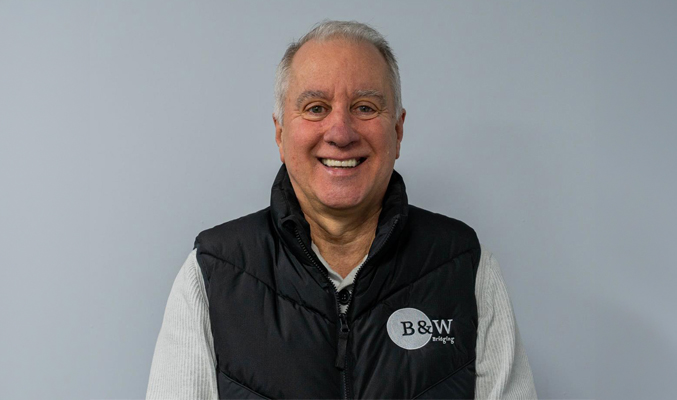“A lot of bad advice and a lack of best practice” – why bridging needs training
By Laura Miller

Bridging loan brokers have remained largely unregulated and without mandatory financial services qualifications even as other parts of the sector have become more tightly regulated and highly qualified – some brokers think it’s time that changed.
Back in 2018 a roundtable hosted by the Financial Intermediary & Broker Association (FIBA) and the Association of Short Term Lenders (ASTL) raised the prospect of a specific, required, professional qualification for those working in bridging finance. According to reports the reaction to improving standards this way was euphemistically “mixed”.
Bridging trails other parts of finance in this. After a series of costly mis-selling scandals, independent and restricted financial advisers, and to a lesser extent mainstream residential mortgage brokers, have been forced in recent years to sit increasingly stringent exams and become members of professional bodies to improve and standardise their advice. But bridging has remained outside this movement.
“The majority of commercial brokers are not regulated, qualified or have suitable experience,” says Alison Sanders, financial consultant at My Broker UK. She holds the Certificate in Mortgage Advice and Practice (CeMap) from the London Institute of Banking and Finance. CeMap is Financial Conduct Authority-approved, widely recognised as the mortgage industry’s premier qualification, and required in the UK to give mortgage advice.
If they only offer unregulated bridging – which covers most business and commercial loans – brokers are not required to hold CeMap or any equivalent. Sanders admits “lending to businesses, making business decisions for a trading entity, is wholly different to seeking advice as an individual”, but believes even though the market is unregulated, “for client confidence there should be some sort of bar set as to who can practice in the industry”.
One option could be to require brokers join the National Association of Commercial Finance Brokers (NACFB), which has a code of conduct members must follow or a similar professional body. Those who join are “showing commitment to the industry and clients”, says Sanders. Financial institutions that accept business from bridging brokers, she adds, also have a duty to uphold standards. “I feel lenders should take responsibility to make sure the person introducing the cases is of calibre,” she says.
Training and development is not only about preventing scandals. Global professional networking site LinkedIn asked 2,400 employees what drives their feelings of satisfaction at work. It found those who spend time at work learning were 47% less likely to be stressed, 39% more likely to feel productive and successful, 23% more ready to take on additional responsibilities, and 21% more likely to feel confident and happy. Yet less than a fifth of organisations globally cited significant progress in establishing an upskilling programme in 2019, according to PwC’s 23rd Annual Global CEO Survey .
Kim McGinley, director at broker VIBE Finance, who is also CeMap qualified, was so disappointed with the calibre of candidates on offer during a recent hiring round she decided to take matters into her own hands. “The specialist sector is completely different to the regulated mortgage side and finding advisers with the required specialist mortgage experience is actually really hard,” she says, “there is unfortunately a lot of bad advice out there and a lack of ‘best practice’ brokers”. To solve her problem, McGinley has devised a trainee specialist adviser role to welcome a newcomer willing to embrace learning and development to achieve the high standards VIBE’s director has struggled to find in the market.
“I’ve come to the conclusion I would love to build and train my own team of advisers who may come from a variety of employment backgrounds, who do not have any preconceptions of our industry, but who are without a doubt hard working, keen to learn and can be an awesome part of our team,” McGinley says.
She supports further regulation of the bridging sector. Like Sanders she is concerned that, because bridging lending is largely unregulated, “many broker firms feel they can hide behind this fact”. Regulation of the industry “would in essence weed out those particular brokers who do not apply best practice for their clients”, she says.
Typing “bridging loan” into the admittedly haphazard decision search on the Financial Ombudsman Service website brings up 689 complaints going back to 2015. Narrow it by only complaints upheld in favour of the consumer and over the same time period this falls to 246. Less than 50 upheld complaints a year in the last five years is the kind of stat many other parts of the financial sector can only dream of.
A FOS case from October also underlines how even regulated bridging brokers can give bad advice. Charterhall Associates, a regulated adviser firm, was ordered to pay £120,000 to a couple it recommended take out a bridging loan, after the FOS ruled the advice was “not appropriate based on Mr and Mrs F’s circumstances at the time, including their likely attitude to risk…needs or aims”.
The unfortunate couple ended up having one property repossessed by the bridging lender, and an outstanding balance of almost £150,000, plus interest, secured against another property, their home.
Charterhall Associates disputed its advice was unsuitable, but failed to produce a record explaining why the bridging loan it recommended was the best course of action, such as a fact find or document counter signed by Mr and Mrs F. “This alone doesn’t mean the advice was not suitable. But it does call into question…whether the advice given was based on a full review of their circumstances and was suitable,” Ombudsman Ben Stoker said in his decision.
“It just goes to show wrong advice can also be given in the regulated sector, however at least there you cannot hide behind a lack of regulation,” says McGinley about the FOS case. She is clear that “just because our industry is unregulated, it does not mean that you cannot obtain good quality advice”.
Absent the standardisation of other regulated parts of finance, however, means living with a hit-and-miss scenario where “training and competence is down to each individual broker firm and how they go about training their own staff”, she says.
McGinley, who has been involved in the commercial loan market since 2006, adds “there are far too many bridging loans being taken out unnecessarily due to bad advice and brokers not looking into the most important part of arranging a bridging loan – the exit”.
Learning and development is likely to become even more important in a post-Covid-19 world. Britain will face a growing skills shortage over the next 10 years if it fails to retrain and re-skill workers for the shift to a digital-based economy accelerated by the pandemic, according to a McKinsey report published in November.
The consultants found 94% of the UK workforce lack skills they will need in 2030. Some of the jobs most at risk include sales roles. For UK employers the analysis found reskilling would yield positive economic returns “in about three-quarters of cases”, with effective reskilling tending to bring a productivity uplift of 6% to 12%.
McKinsey points to clear practices employers can adopt to drive effective reskilling. These include conducting strategic workforce planning to determine the skills gap in an organisation, improving training options for employees and fostering a culture of lifelong learning.
Re-skilling current workers is also a good way of controlling salary costs. As VIBE director McGinley found out when she was hiring, the McKinsey report notes employers scouring the labour market for expert new hires are likely to be competing with other companies for scarce skills. Like McGinley, 9 out of 10 UK employers are struggling to recruit the skills they need, the report found, and this means having to pay more when recruiting – according to McKinsey sought-after skills tend to attract a premium where on average external hires are paid 20% more than re-skilled workers.
Not one to wait around for others to catch up, as well as being ahead of the game in creating her own in-house training programme VIBE’s McGinley is ready if regulation does ever come knocking on the door of bridging lending. “We follow best practice, we have since we started out back in 2018 in readiness should our industry ever become regulated,” she says – “all of our processes and training are based on this”.

Laura Miller is a freelance journalist who writes about money and business. She regularly appears in UK national and trade newspapers and magazines, and has previously worked for ITV News and the Telegraph among others. Find her on twitter @thatlaurawrites










You must be logged in to post a comment.